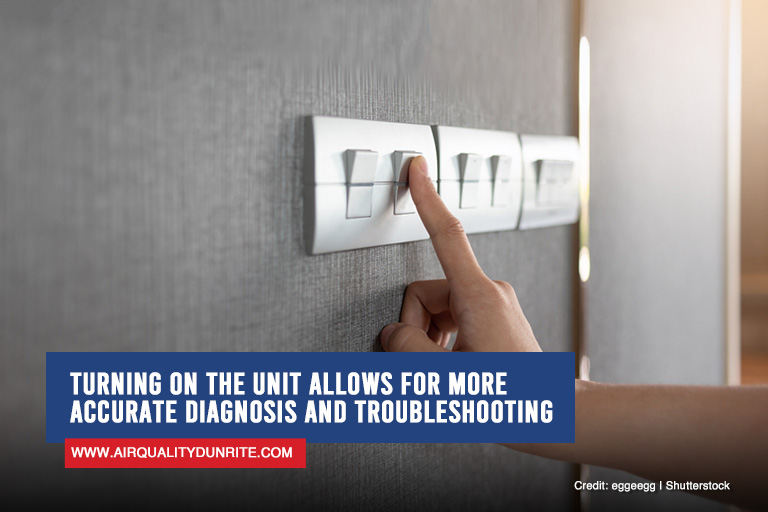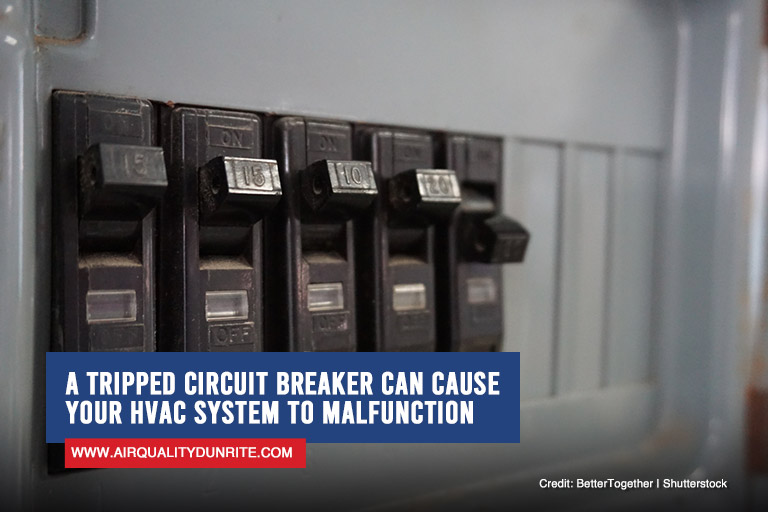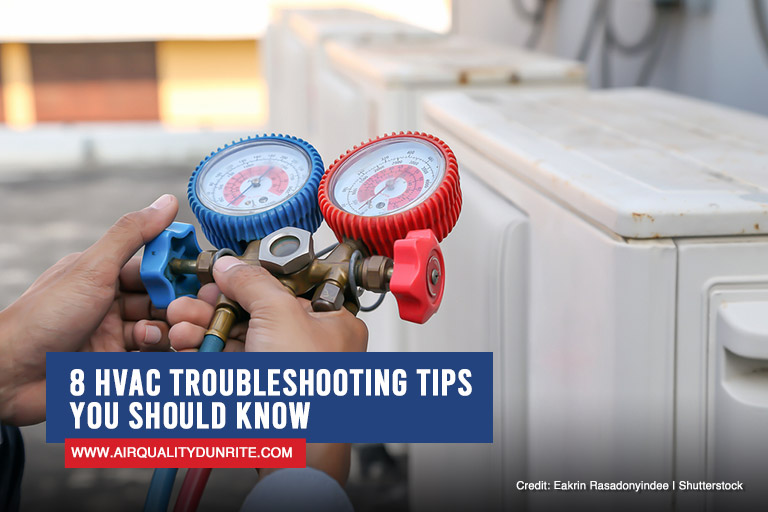Picture this: it’s the middle of summer and your air conditioner goes out and your home starts feeling warmer and warmer by the minute. You’re not sure what to do and you’re worried about an expensive bill. Don’t get too stressed out, though, because there may be a simple solution to your problem.
While it is typically best to call an HVAC professional in these situations, there are some things you may be able to do to troubleshoot the problem on your own.
In this blog post, we will discuss some common problems that can occur with your AC unit and how to fix them.
1. Check to See If the Unit Is Turned On

When it comes to HVAC troubleshooting, it is important to make sure that the unit is turned on. If the unit is not turned on, it may appear to be working correctly when it is actually not. This could lead to further damage to the unit or even danger to the occupants of the building.
Additionally, turning on the HVAC unit will help to ensure that all of the components are functioning properly. By troubleshooting with the unit turned on, you can be sure that you are getting an accurate diagnosis of the problem.
2. Make Sure the Thermostat Is Set to “Cool” and That it’s Turned On
If your central air conditioner is not working, one of the first things you should check is the thermostat. Make sure that it’s set to “cool” and that it’s turned on. If the thermostat is set to “heat” or “off,” the air conditioner won’t turn on. Also, make sure the temperature setting is lower than the current room temperature.
If the thermostat is set too high, the air conditioner won’t turn on. Once you’ve checked the thermostat, take a look at the breaker box. If the breaker has tripped, reset it and see if that solves the problem. If not, check to see if there’s a loose wire somewhere. If you’re still having trouble, it’s time to call a professional.
3. Clean or Replace the Air Filter
Your HVAC unit is responsible for keeping your home comfortable all year round. In order to do its job effectively, it relies on an air filter to remove dust, pollen, and other airborne particles from the air.
Over time, the filter becomes clogged with debris, which can restrict airflow and cause your HVAC unit to work harder than it needs to. Additionally, a dirty air filter can lead to poor indoor air quality, causing allergies or respiratory problems.
For these reasons, it’s important to clean or replace your air filter on a regular basis. Luckily, this is a relatively easy task that can be done in just a few minutes. By taking this simple step, you can keep your HVAC unit running smoothly and ensure that your home is always comfortable.
4. Check for Any Obstructions in Front of the Unit
If your HVAC unit is obstructed, it won’t be able to work properly. The airflow will be restricted, and the unit will have to work harder to circulate air. This can lead to decreased efficiency and higher energy bills. Additionally, an obstructed HVAC unit is more likely to overheat and break down.
To avoid these problems, it’s important to regularly check for any obstructions in front of your HVAC unit. Make sure that there’s nothing blocking the intake or exhaust vents, and that the area around the unit is clear. By keeping your HVAC unit unobstructed, you’ll ensure that it works properly and lasts for years to come.
5. Make Sure the Vents are Open and Not Blocked
The vents in your home play an important role in the ventilation system. They are responsible for bringing in the fresh air and circulating it throughout the house. When the vents are blocked, it can cause a number of problems.
The most obvious is that it will make your home feel stuffy and claustrophobic. But blocked vents can also lead to more serious issues, like mould growth and poor indoor air quality. Additionally, your HVAC system will have to work harder to circulate air when the vents are blocked, which can lead to higher energy bills.
6. Reset Your Circuit Breaker

One of the most common causes of HVAC issues is a tripped circuit breaker. This can happen for a number of reasons, including a power surge or overloaded circuits. If you suspect that your HVAC system is not working properly, the first thing you should do is check your circuit breaker.
If the breaker has been tripped, simply reset it and see if that solves the problem. If the issue persists, you may need to call a professional for help. In most cases, however, resetting the circuit breaker will be all it takes to get your HVAC system up and running again.
7. Check for Loose Connections
One of the most important maintenance tasks is to regularly check for loose connections. Over time, vibrations can loosen screws and cause electrical connections to become loose.
If left unchecked, these problems can lead to serious damage. In some cases, loose connections can even cause fires. As a result, it’s important to check your unit regularly and tighten any loose screws or reconnect any loose wires. By doing so, you can help to keep your unit running smoothly and prevent costly repairs in the future.
8. Look for Frozen Coils
The coils in your HVAC unit help transfer heat between the air and the refrigerant. If the coil is frozen, it can prevent the HVAC unit from functioning properly and may even cause damage to the unit. For this reason, it’s important to check for frozen coils on a regular basis and take steps to prevent them from forming in the first place.
Some simple measures that can help include insulating exposed pipes, keeping the area around the unit clean and free of debris, and making sure that the unit is properly calibrated. By taking these precautions, you can help extend the life of your HVAC unit and ensure that it runs smoothly for years to come.
Professional Air Conditioner Repair in Vaughan
By keeping these tips in mind, you may be able to successfully troubleshoot some issues with your HVAC unit. However, if you find that your unit is still not working properly, it may be time to contact a professional.
At Air Quality Dunrite, we offer a wide variety of HVAC services including furnace repair in Vaughan. Contact us today to learn more about how we can help with repairing and troubleshooting your AC unit.



